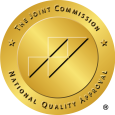Have you ever considered the impact of peer support in recovery? As you may imagine, it could be one of your sources of strength that could positively influence your life. After all, sometimes you just need a listening ear.
In this blog, allow us to delve into how you can find a peer support group for you and your needs.
Benefits Of Peer Support In Recovery
Addiction recovery is a long and challenging path, and it feels daunting to be alone. When you have a supportive peer influence, you can get the following benefits:
Shared Experiences
Shared experiences are the foundation of peer support in recovery. It’s a space where you can open up about your challenges, wins, and the complexities of your journey.
By sharing these stories and narratives, you become a part of an environment that fosters empathy, understanding, and a profound meaning to the recovery process.
Relatability
Connecting with peers with firsthand knowledge of the experience can give you a better sense of comfort and trust. This can help you be true to yourself and others about your experiences.
Accountability
Peer support is more than sharing stories; there is also a shared commitment to progress, such as overcoming triggers. You want to see the day your peers achieve sobriety. You are on this journey to being better together. A shared responsibility among peers fosters a support system where you are each other’s source of motivation.
Types of Peer Support Systems
Here are some of the most common peer support systems:
Support Groups
Peer support groups enable you to connect with others who are also undergoing addiction recovery. You engage with each other face-to-face and may do some activities together too.
These traditional groups surround you with a comforting atmosphere where you can be yourself–the version of you before the addiction. This option is great for those who value in-person and genuine connections.
12-Step Programs
If your needs are more fit for a structured environment, 12-step programs may be for you.
As the name implies, this will guide you in 12 steps toward self-discovery, accountability, and sustainable and healthy sobriety.
You begin by admitting that you have an addiction, believing that you can reach sobriety, examining your mistakes, learning a new life, and then finally, helping others with the same problem.
These programs are best if you want a personal roadmap for recovery. Most 12-step programs have a spiritual element, so it would be great to research before committing to one.
Online Communities
In the digital age, you may not always be available for face-to-face support groups. That makes online communities a good option.
You will be talking to people all over the world. Whatever your needs and experiences are, there will surely be forums, chat groups, social media platforms, or online communities for you to engage with.
The best part is that you’ll always have access to your group wherever and whenever you might want it.
Building Trust and Safety in Peer Groups
There are three parts to peer support in recovery: trust, confidentiality, and non-judgemental environment. Without these, your peer group could be detrimental to your recovery without you even realizing it.
Trust
Without trust, you will be uncomfortable to open up to someone. That’s because trust is integral to creating a safe space for you and your peers to share your goals, vulnerabilities, and experiences.
When this trust is well-founded, the collective empathy, understanding, and sense of security in your peer group increases, and your overall peer group dynamic improves. With trust, you can build a network of warmth, support, and love.
Confidentiality
It’s important to keep secrets when peers trust you with their personal stories. Remember, it’s their story, not yours, so they should be the ones to tell it if they want to.
By keeping their secrets, you show that you respect and care for their trust. This makes everyone feel safe to talk openly and honestly in the group.
When everyone respects each other’s privacy like this, it helps build stronger friendships. Peer group discussions that brim with discretion and respect encourage open and honest communication.
Non-judgemental Environment
Peer groups in recovery are ineffective if you don’t feel safe to talk without being judged. You should be able to freely express yourself without worrying about discriminative, criticizing, and judgmental voices.
When everyone feels like they can be embraced, that’s when peer groups begin to work, because now all of you feel accepted as you are.
Finding and Joining Peer Support Groups
A peer support group can be one of the best steps you can take for your addiction recovery. By joining one, you are building a support system both for yourself and others.
Here are some quick steps you could start with:
- Explore online platforms and forums. There are specialized forums and social media website pages that could cater to your specific needs and challenges.
- Reach out to your professionals. Your counselors and therapists can guide you toward groups that could align with your preferences.
- Attend a first meeting. Groups typically allow a trial period to check for compatibility. Don’t hesitate to communicate your needs, expectations, and concerns to ensure you’re in the right group.
In Conclusion
Peer support can positively affect your recovery journey especially if you actively participate by sharing your experiences and holding each other accountable.
This creates a mutually beneficial system where both you and your peers gain from the interaction. Seeing the progress and hope in others can inspire you to improve and enhance your mental well-being.
Explore the world of support through traditional groups, 12-step programs, and online communities – there’s a perfect peer group waiting for you.
Ready to take the first step towards overcoming addiction? Connect with our dedicated team at Another Chance.






